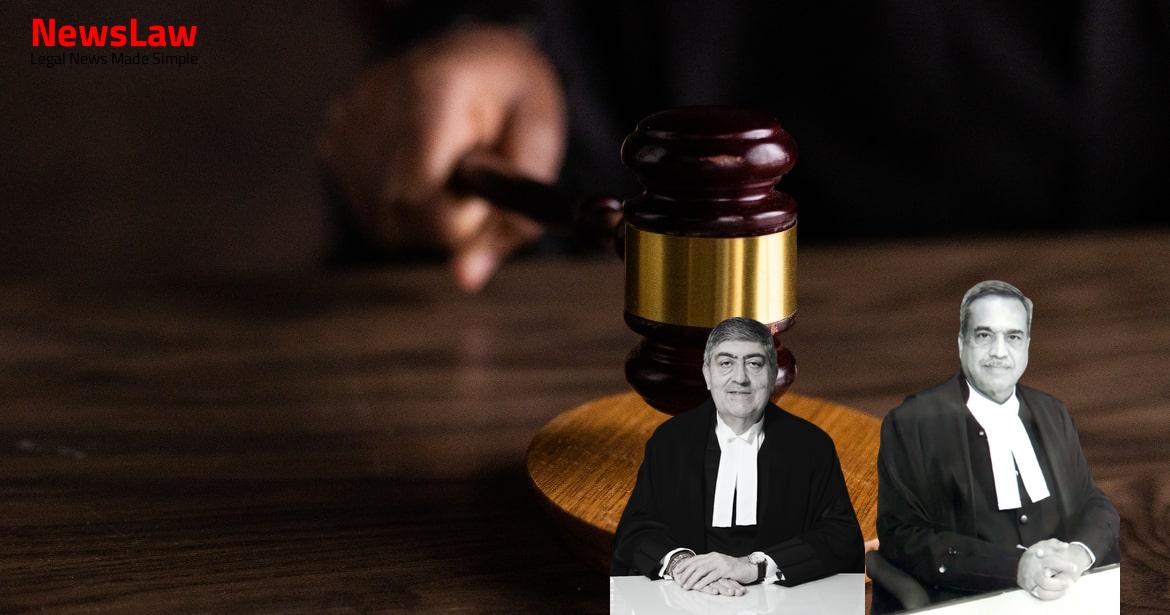This blog delves into the court’s profound legal analysis regarding delay and laches in the context of seeking legal remedies. It highlights the significance of timely action and fairness in matters of law. The examination distinguishes between laches and acquiescence, shedding light on the implications of these legal concepts. Stay tuned for a comprehensive exploration of the role of estoppel principles and the duty to act fairly in altering contract terms.
Facts
- Shri VS Nandakumar, a private respondent challenging recruitment and selection, voluntarily retired in 03.2008.
- Government introduced procedure in 1991 requiring ACC approval for certain posts.
- Respondent joined CPRI in 1984 and Civil Appeal No 2491-2492 of 2021 serves as lead case for parties.
- CPRI is an autonomous body under Ministry of Power, functioning under Karnataka Societies Act, 1960.
- Office Memorandum in 2006 facilitated ACC approved appointments in autonomous institutions.
- CPRI aims to contribute to power sector, conduct applied research, and ensure reliability in power systems.
Also Read: Supreme Court Judgment on Single Till Mechanism for HRAB Calculation: A Comprehensive Analysis
Arguments
- A plaintiff is not allowed to ‘approbate and reprobate.’
- Violation of Articles 14 and 16 of the Constitution of India alleged.
- Retired respondent seeking benefit of Joshi case.
- Appellants argue against relief due to delay, laches, and acquiescence.
- Division Bench reviewed files while recording findings.
Analysis
- The judgment analyzes the concepts of delay, laches, and acquiescence in the context of the case.
- It emphasizes the importance of timely action when seeking legal remedies.
- The analysis distinguishes between laches and acquiescence, noting that acquiescence may lead to laches.
- The application of estoppel principles in cases involving delay and acquiescence is discussed.
- The duty to act fairly and its implications in altering contract terms are examined.
- The analysis considers the role of knowledge and acceptance in contract formation.
- The concept of approbate and reprobate is highlighted in the context of invoking legal remedies.
- The discussion also addresses the significance of prejudice in evaluating delay and laches.
- The relevance of fairness, reasonableness, and equity in administrative decisions is explored.
- The judgment scrutinizes the validity of termination orders in light of contract terms and employer discretion.
- Contract Act provisions related to conduct of a party
- Presumption of knowledge when confirming an offer through acceptance
- Importance of unconditional acceptance in confirming an offer
- In this judgment, the court considered the argument presented by Sri Krishnaswami Ayyangar regarding the proceedings in OS.
- The argument was related to a specific aspect of the case, setting the context for the subsequent legal analysis.
- This part of the judgment explains the basis for the legal argument put forth by Sri Krishnaswami Ayyangar.
- The court’s consideration of this argument adds depth to the overall analysis of the case.
- Delay and laches are crucial factors considered in cases involving the doctrine of election and the principle of estoppel.
- Public interest and fairness play a significant role in determining the outcome of cases related to delay and laches.
- The doctrine of election is based on the rule of estoppel, preventing parties from accepting and rejecting the same transaction for their advantage.
- Various court decisions emphasize the importance of timeliness and fairness in invoking writ jurisdiction under Article 226 of the Constitution of India.
- The High Court’s discretion in granting relief is influenced by factors such as delay, laches, and unexplained conduct of the petitioner.
- The employer’s decision for fresh recruitment was approved by all appellants in the interest of the society.
- No entitlement to extension means no consequential benefits for the respondent.
- Confirmation by ACC not warranted as it is not a case of extension.
- The appeals filed by the respondent are deserving of dismissal.
- The respondent is not entitled to any relief based on assessment of facts and concepts of law.
Also Read: Selection and Appointment of Judicial Officers in Himachal Pradesh
Decision
- The appeals filed by the appellants are allowed by setting aside the impugned order.
- As a consequence, the appeals filed by the respondent are dismissed.
Case Title: UNION OF INDIA Vs. N MURUGESAN (2021 INSC 628)
Case Number: C.A. No.-002491-002492 / 2021



